Artist Katarina Pirak Sikku lives and works in Jokkmokk in the North of Sweden. Throughout her artistic practice, she has drawn attention to the legacy of the Swedish racial biology, based on her own identity as belonging to an indigenous people. In one of her latest work, she has carefully covered the photo albums that remain from the Swedish Institute for Racial Biology in clothing, tin wire, beads, ribbons and lace based on the traditional costumes of the people photographed.
In her contribution to Bildmuseet’s anniversary forum, Katarina Pirak Sikku will give a personal account of art’s significance for herself and for people around her, today and yesterday.
Katarina Pirak Sikku was educated at the Umeå Academy of Fine Arts, Umeå University. Her work has been exhibited at Korundi, Rovaniemi; Museo de Arte Moderno de Medellín; Árran lulesamisk senter i Drag, Bildmuseet, Umeå, and Moderna museet, Stockholm. The solo exhibition Katarina Pirak Sikku / Nammaláhpán launched Bildmuseet's exhibition series with Sami artists in 2014, after which Pirak Sikku was shortlisted for the Dagens Nyheter’s Culture Prize. In 2022 the artist will participate in the exhibition The TV Springboard: From Children’s Programmes to Contemporary Art and Literature at Bildmuseet.
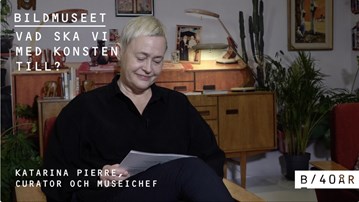
Welcome by the director of Bildmuseet and host of the anniversary forum What Do We Need Art For?.
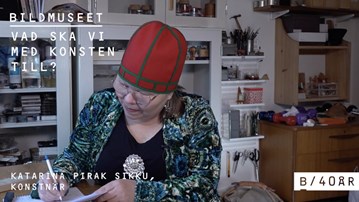
Artist Katarina Pirak Sikku gives a personal account of art’s significance for herself and people around her.

Professor Gavin Butt considers the history of "art-pop" music and the world-making capacities of art today.

Dramatist and writer Stina Oscarson talks about the importance of art in reminding us that we are human.
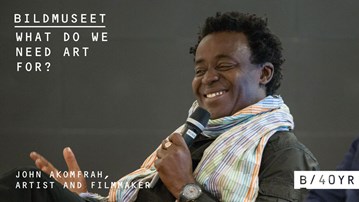
Artist and filmmaker John Akomfrah answers the posed question in conversation with director Katarina Pierre.

South African photographer Cedric Nunn talks about the context in which he is a politically active artist.

Curator Maria Lind on contemporary art as a form of understanding and tool for relating to existence.

Musicians Sofia Jannok and Dennis Lyxzén on what art and culture have meant in their lives.

Curator Tone Olaf Nielsen discusses artistic and curatorial responses to the refugee crisis.
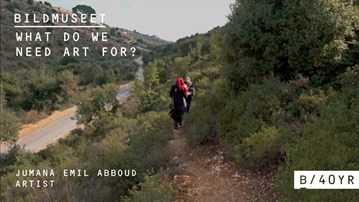
Artist Jumana Emil Abboud performs a reading about walking in the Palestinian landscape.

Artist Mats Caldeborg reflects on the significance of art and the human ability for abstract thinking.

Artist Grada Kilomba gives her answer to the question posed in a conversation with director Katarina Pierre.
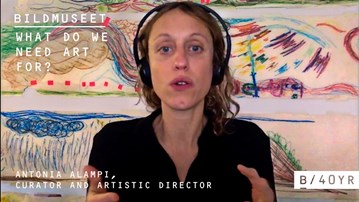
Curator and director Antonia Alampi addresses the multifaceted roles that art and cultural practices play.
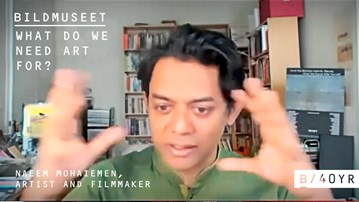
As his contribution to the online forum, Naeem Mohaimen shows us the new film work Against Regret (23 min).